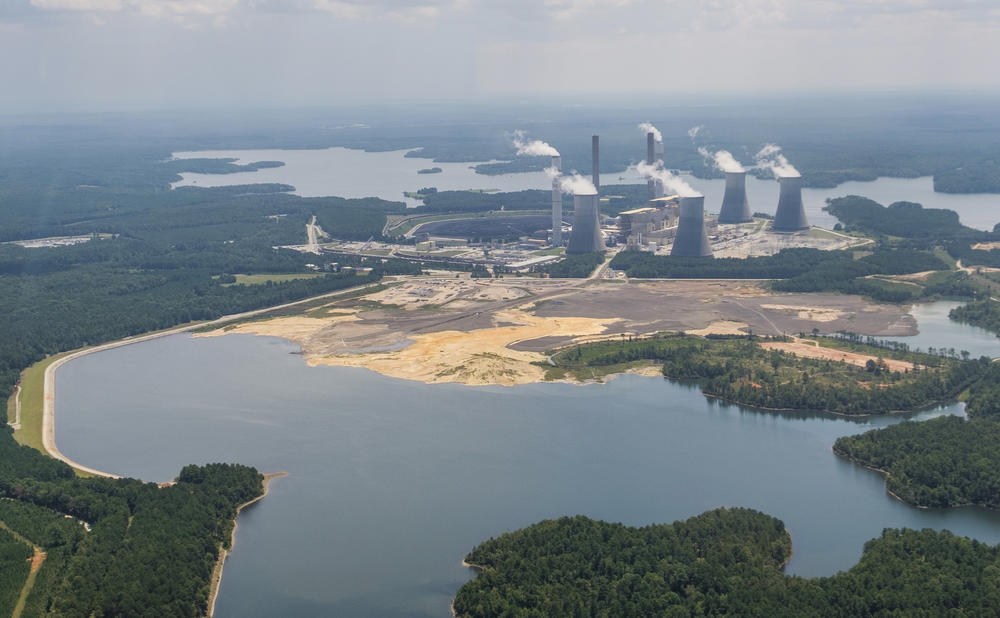
Section Branding
Header Content
Decades-long dispute over whether coal ash made Monroe County residents ill is settled out of court
Primary Content

Georgia Power and residents of Juliette, Ga., in Monroe County have reached a mutual resolution to their dispute after lawsuits that percolated for years.
Residents sued Georgia Power after alleging for decades they had experienced illnesses such as cancer, renal or respiratory disease because coal ash leached into their well water from the ash pond at Georgia Power’s Plant Scherer.
Coal ash is what’s left after burning coal to make electricity. It contains heavy metals and other toxins which can cause a number of serious ill health effects when consumed. At Plant Scherer, 16 million tons of coal ash is stored in what is called an ash pond.
There is an aquifer that flows through the ash pond and emerges just downhill as Berry Creek before flowing into the Ocmulgee River. That aquifer is the same one that historically supplied nearby residents with drinking water. While residents alleged the water made them sick, results from community well testing years back aimed at providing proof were never publicly released.
In total, there had been 10 separate lawsuits across different courts before the agreed-upon resolutions. Attorneys for the plaintiffs stressed that the agreements, including the one signed by the sons of plaintiff Tony Bowdoin — who died before his case could be heard in court — were voluntary.
Among the other plaintiffs were cousins, both of whom lived in separate households within sight of Plant Scherer and both of whom experienced life altering and debilitating cancers before they were out of their teens.

In an order on a set of reserved motions connected to the dismissal of a civil case with 45 plaintiffs in Monroe County Superior Court, Judge Thomas H. Wilson laid out findings of fact agreed to as a condition of the case resolution.
“There are no material facts supporting Plaintiffs’ allegations that Plant Scherer's operations caused or contributed to any personal injury alleged in this case,” reads finding No. 5 in the list.
“We are pleased with the Court’s decision in this case, which concluded that Plant Scherer does not negatively impact drinking water and did not cause or contribute to any injuries,” said a Georgia Power representative in an emailed response.
At least four experts in subjects ranging from groundwater flows to toxicology had been teed up by plaintiff’s attorneys and approved by the court to testify to the contrary in the case in which even jury selection was cut short.
While dispute resolutions this large usually involve sizable cash payouts, plaintiff's attorneys Stacey Evans and Brian Adams have been silent about what they may have secured for their clients. Georgia Power would neither confirm nor deny to GPB any monetary settlement with the plaintiffs in conjunction with the agreements.

One issue still outstanding in Georgia Power’s management of coal ash is whether or not they will be allowed, as they have long sought, to close the ponds at Plant Scherer and other sites by leaving the material submerged in groundwater.
The Biden-era Environmental Protection Agency had put Georgia Power on notice as recently as February of this year that their requests to Georgia regulators for so-called “cap in place” storage violated EPA rules. Those rules had lain dormant and unenforced during the first Trump administration.
The final decision on Plant Scherer’s coal ash pond closure plan is not expected from the Georgia Environmental Protection Division until after Trump’s January inauguration.

